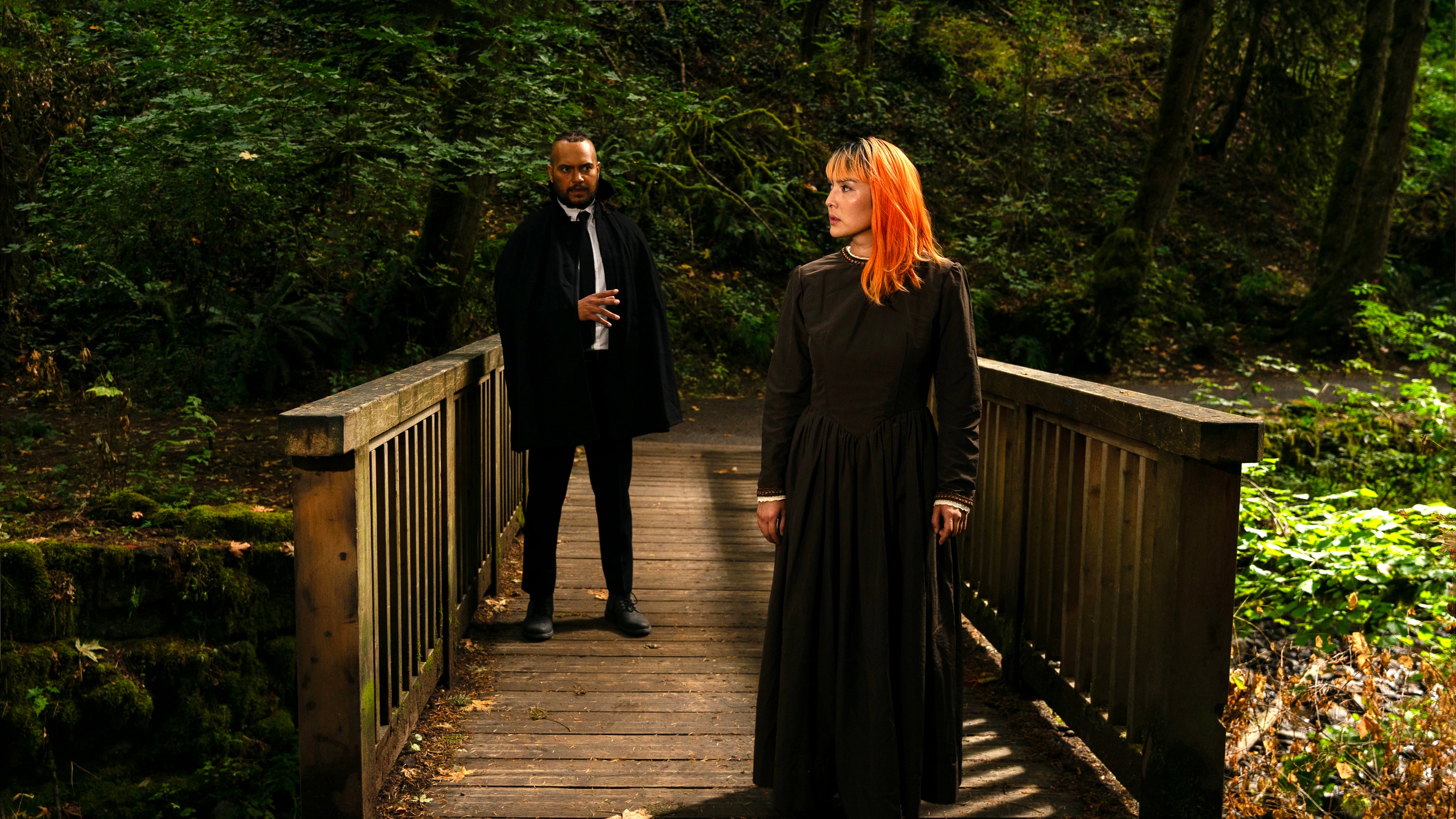“No, no, no. We said no.” Those words, spoken by Mina Harker as she confronts Dracula, echo throughout Dracula: A Feminist Revenge Fantasy, Really, playwright Kate Hamill’s revisionist adaptation of Bram Stoker’s late 19th century vampire novel.
No musty tale of a courtly bloodsucker, Hamill’s Dracula not only includes sexual violence and suicide, but rewrites traditionally male characters—like the vampire-hunting Dr. Van Helsing and the Dracula-adjacent Renfield—as women, bringing a post-#MeToo urgency to the original narrative (the first performance of the play was in 2020).
“There’s a lot of gruesomeness and death inside this play,” says Portland Center Stage artistic director Marissa Wolf, whose production of Hamill’s creation premieres in November. “And it’s not going to necessarily be in a campy style. We’re going to be theatrical…but it’s going to feel visceral.”
As Wolf’s vision began to take shape (she recently cast Cycerli Ash as Van Helsing, Setareki Wainiqolo as Dracula and Ashley Song as Mina), she spoke to WW about the power of vampiric metaphors, the nuances of intimacy choreography, and what blockbuster productions like Dracula mean to an embattled theater industry.
WW: Can you describe your vision for Dracula?
Marissa Wolf: It wants to feel like a chilling production. It’s got elements of the seductive vampire who takes over people’s bodies and moves from Romania to the U.K. [Kate Hamill wrote] battles in the crypts and all of it. And this is not a comedy, but she does allow for genuine humor to ripple through, which is a really important device in this play.
In this version, Van Helsing is a woman and Renfield is a woman. You have women who are battling the patriarchy and women who are bolstering it.
The play is obviously set in the U.K., but Van Helsing is a female American cowboy. That feels really badass to me. Hamill’s framework is vampirism as misogyny, and the way it’s passed down century after century after century and you must put a stake in its heart and decapitate it. And even then, it will still lurk among us.
The full title of the play is Dracula: A Feminist Revenge Fantasy, Really. What do you think the “really” implies?
Oh, Bennett! I don’t know! You see Dracula, you think one thing—you think scary, men fighting each other, hypersexuality. [The title] is an invitation: “Hey, this world’s going to hold all things. It’s going to hold the creepy, it’s going to hold the horror, and it’s going to hold the humor.”
Tell me about the audition process.
Some of the scenes I chose were some of the most physical moments in the play. They don’t involve fighting or anything like that, but they involve the push and pull of being occupied by Dracula—of having Dracula speak through you or use your body in some way without touching you. There’s a physicality to that.
Now in our field, we have this whole world of intimacy choreography. And part of it is not just kissing or sex scenes. The intimacy choreographer will come in on the first day and do an hourlong presentation and some exercises, creating a daily practice where every actor who’s in a scene together connects ahead of time at the top of the day, looking at what parts of their body are fine to touch that day. It can change day to day, hour to hour, and we really stay on our toes about that.
Intimacy choreography hasn’t been mainstream for that long. What has it been like to witness that become part of the process?
I think all the time about how it was only a few years ago that I was staging the kisses in plays myself, as a director. I think I was staging them thoughtfully. I was definitely treating them as choreography that we would build beat by beat together.
That said, I’m wholeheartedly all in on the role of an intimacy choreographer being different than that of a director, because it breaks up the power dynamic. Sometimes as a director, you actually don’t know if an actor says yes to something because they want to please you or they feel they can’t say no—because you’re the director leading the room.
It’s a challenging time to create theater. Does that put the pressure on you to stage productions that are a shot in the arm for the industry?
The howling, cold wind of scarcity could easily drive all our decision making. That said, everything we do should be completely entertaining and on-the-edge-of-your-seat thrilling. At a time of serious pain in our field, the only way to be relevant is to come from a place of imagination.
SEE IT: Dracula: A Feminist Revenge Fantasy, Really plays at Portland Center Stage, Main Stage, 128 NW 11th Ave., 503-445-3700, pcs.org. 7:30 pm Wednesday-Sunday, 2 pm Saturday-Sunday, 2 pm select Thursdays, Nov. 25-Dec. 24. $25+.
